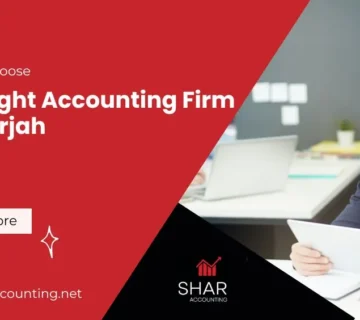Running a Free Zone company is exciting, yet compliance matters daily. Therefore, clear books protect your license, your tax position, and your cash. This guide explains the core accounting requirements for Free Zone companies in Dubai. It also shows you deadlines, documents and useful recommendations that you may utilize in a right away.
Table of Contents
Books and Records: The Foundation
Every Free — Zone entity must keep accurate books. Consequently, you should maintain a general ledger, subledgers, and supporting documents. Additionally — keep sales invoices, purchase bills, bank statements, payroll files and contracts. Furthermore, store them safely and index them clearly.
Although formats vary, IFRS-based records remain the norm. Thus, align classifications with IFRS or IFRS for SMEs. Likewise, reconcile bank accounts monthly. Because clean reconciliations reduce errors, you save time at audit and tax deadlines. Get details about Accounting & Bookkeeping Service in Dubai.
Record Retention and Access
Authorities can request records. Therefore, you must retain accounting and VAT evidence for several years. Moreover, store documents in the UAE or in accessible cloud systems. However, ensure retrieval within reasonable time. Additionally, secure backups and user permissions.
Auditors, free zone authorities, and the FTA may review items. Consequently, keep stamped invoices, signed contracts, and clear audit trails. Thus, reviews finish faster and with fewer questions.
Annual Financial Statements and Audit
Most Free Zones require annual financial statements. Many also require an annual audit by an approved auditor. Therefore, close your books on a predictable calendar. Additionally, prepare schedules: fixed assets, receivables aging, payables aging, accrued expenses, and revenue cut-off.
Free Zone authorities can suspend services for missing audits. Consequently, submit audited financials on time. So, turn in your audited financials on time. Also, make sure that the audit opinion and notes match the filings, loans, and what the shareholders expect.
VAT in UAE: Evidence and Reconciliations
If you are registered, you must file your VAT returns correctly. So, connect your ledger to your POS or platform reports. Additionally, reconcile taxable, zero-rated, and exempt supplies. Moreover, track import VAT and reverse charge entries.
Keep tax invoices with TRN details and mandatory fields. Consequently, your VAT returns rely on reconciled evidence, not estimates. Thus, refunds and audits proceed more smoothly.
UAE Corporate Tax and Free Zone Status
The UAE Corporate Tax regime affects Free Zone entities. Some may qualify as a Qualifying Free Zone Person (QFZP) if they meet conditions. Therefore, track qualifying income, non-qualifying income, and substance. Additionally, maintain board minutes, contracts, and staffing evidence.
You must reconcile accounting profit to taxable income. Moreover, record disallowances, exempt income, and elections. Consequently, your computation links cleanly to audited numbers. Thus, filing becomes a process, not a scramble.
Transfer Pricing and Related Parties
Intercompany transactions require documentation. Therefore, keep intercompany agreements and benchmarking support. Additionally, disclose Related Party totals in your return. If you exceed thresholds, prepare Local File and Master File.
Because pricing disputes create risk, align policies early. Moreover, reconcile intercompany balances monthly. Consequently, audits and tax reviews progress without last-minute negotiations.
Substance and Operational Evidence
Free Zone companies must show real presence. So, keep enough staff, space, and decision-making in the UAE. Also, keep records of board meetings and important approvals. Furthermore align service — agreements with actual activities.
Substance supports your QFZP position and overall compliance. Therefore, store HR records, lease documents, and photos of premises. Consequently, authorities see operations, not just paperwork.
Management Accounts and Cash Visibility
Great compliance starts with timely visibility. Therefore, produce management accounts monthly: P&L, balance sheet, KPIs, and short variance notes. Moreover, run weekly cash flow forecasting for salaries, rent, VAT, and suppliers.
Because numbers guide decisions, keep reports short and actionable. Consequently, leaders adjust pricing, purchasing, and credit terms early. Thus, quarter-end surprises decline.
Bank Reconciliation and AR/AP Hygiene
Mismatched bank balances cause pain. Therefore, reconcile banks and wallets monthly. Additionally, tie deposits, fees, and payouts to ledger entries. Moreover, track AP/AR with clean aging and notes.
Send vendor reconciliations quarterly. Likewise, run debtor follow-ups weekly. Consequently, cash stays predictable, while disputes decline. Thus, audits and tax filings rely on steady subledgers.
Software, Integrations, and Controls
Choose software your team will actually use.When set up correctly, QuickBooks, Xero, Zoho Books, and Tally can all operate. Also, connect payment gateways, bank feeds, and point-of-sale systems. Moreover, enforce role-based access and monthly close checklists.
Because simple controls prevent leaks, keep approvals short and documented. Consequently, fraud risk drops and evidence accumulates naturally. Thus, your audit finishes faster.
Outsourcing vs In-House
It is possible to hire someone, however outsourced accounting Dubai grows faster. So, think about a hybrid model: an in-house admin and outside help with month-end and audit readiness.
You should also specify SLAs, calendars, and scope cards. With the proper partner, reports and also reconciliations are always on time. Consequently, management focuses on growth while the back office runs smoothly.
A Simple Compliance Timeline
- Weekly:- Update on cash flow predictions and follow-ups on accounts receivable.
- Monthly:- Bank reconciliation, the VAT evidence file, and the management accounts.
- Quarterly:- Vendor reconciliations, inventory inspections, and policy updates.
- Annually:– getting ready for an audit, making financial statements, figuring out corporation taxes, and sending out a license renewal pack.
Create a one— page calendar. Moreover, assign owners for each item. Consequently, accountability turns deadlines into routine.
Related Articles:
» Benefits of Outsourcing Restaurant Accounting Services in Dubai
» What Are the Different Parts of Tax Returns Under UAE Corporate Tax?
» All About the Audit Report: Elements and Types for Your Business in UAE
» Why Hospitality Accountancy Is Crucial for Hotels and Restaurants in Dubai?
Accounting Essentials for Dubai Free Zone Businesses
The accounting requirements for Free Zone companies in Dubai are manageable with rhythm and documentation. Keep your records tidy, check them every month, and plan your reports. Also, get ready early for VAT, audits, and business taxes. Consequently, you protect status, reduce risk, and free leadership time for customers.
Frequently Asked Questions
Many Free Zones require annual audits, confirm your zone’s rules and submit report on time.
Use IFRS or IFRS for SMEs — aligned with UAE expectations.
Retain — accounting & VAT evidence for several years, ensure quick retrieval.
Yes, with specific rules. QFZP — status depends on conditions and qualifying income.
Tax — invoices, TRN details, supply classifications, import — VAT and reconciliations.
If related-party thresholds apply, maintain agreements, benchmarking, and files.
Monthly P&L, balance sheet, KPIs, variance notes, and actions.
Yes. Outsourced teams can manage bookkeeping, VAT, and audit prep under SLAs.







